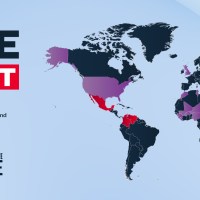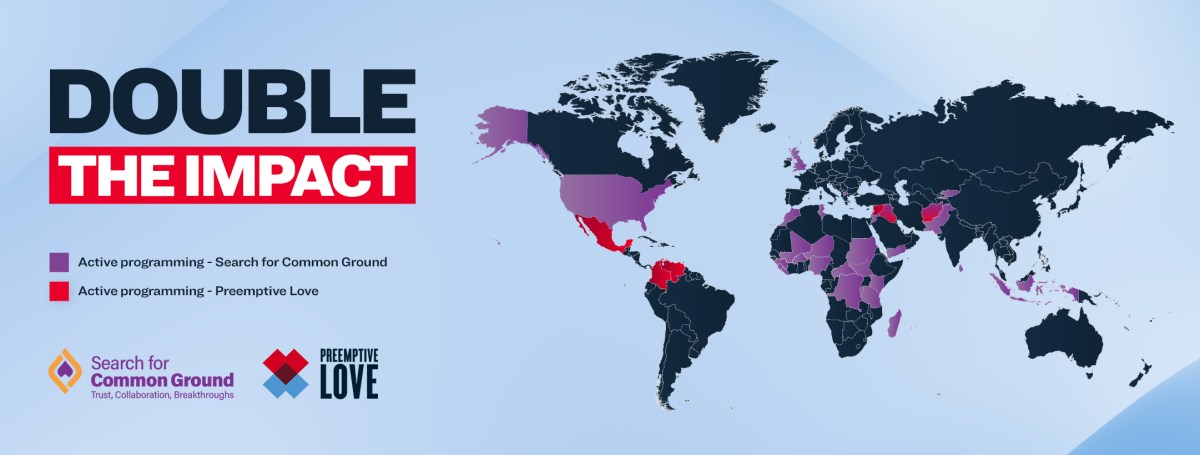“Sometimes the memories come back to me.” At this moment, Andre’s* eyes hold the pain. “I think back on how my life used to be.” When he was a child, Andre was out walking with his mother and father one evening. They encountered an armed group who took his mother and father. A few moments later, Andre heard gunshots. Growing up without parents, Andre recalls, “I was so angry. I’d just fight with those around me.”
Andre lives in the Democratic Republic of Congo (DRC), which has been experiencing violent conflict since the mid-1990s. During the last three decades, violence has scarred the lives of millions of Congolese like Andre.
When we think of peacebuilding, we might picture diplomats negotiating treaties around conference tables in private locations. While this scenario happens, peacebuilding often happens in public spaces with people like us. That’s what happened in Congo, and it changed Andre’s life.
When a person changes, that person can change others. Search for Common Ground, with whom we’ve recently joined peacebuilding forces, harnesses the power of infectious change to build peace through its innovative use of storytelling. In Congo, Search used Participatory Theatre to transform conflict and promote healing. Here’s how.
How Participatory Theatre Works
In Participatory Theatre, a community in conflict develops a play showing the problems the community faces and possible solutions for those problems. The actors create the scenes from what they hear around them, so the final story mirrors the conflict the community is experiencing.
When the actors perform the play, people from the audience are invited on stage to replace the actors and redo the scenes, navigating the conflict differently. This allows the actors and the audience members the opportunity to think, talk and ask questions about their current problems. When audience members come on stage and offer ways to improve their present situation, they become stakeholders in solving the issue presented in the play and agents of social change.
When the scenes are re-performed, the actors and the audience experience a different future. The re-performance is not the end of the process. Instead, the shared experience of having dialogues, reflecting, and actively shaping solutions to the community’s problems is the beginning of conflict transformation.
After Search’s actors performed a few times in Andre’s village, he was asked to join the players and was trained in the Participatory Theatre technique. Andre remembers how hard it was for him to talk in front of others at first. The training he received helped him overcome his reluctance to speak. As he performed stories about conflict, he realized that he wasn’t the only person who had suffered. In turn, when he related his experiences to others’ experiences of violence, they felt less alone. Looking back, he concludes that “artists can bring peace through their work…I want to give the peace I have to others. Then, they can work together and spread this message of peace to all of Congo.” Since 2005, Search has performed more than 10,000 Participatory Theatre shows across Congo, reaching over one million people. Globally, Search uses Participatory Theatre to diffuse conflicts over resources, refugees, land rights, sexual violence, corruption, and prejudice.
Conflict is inevitable, but violence is not. When people gather to reflect on their lives through Participatory Theatre, they organically find solutions to their problems. By meeting people where they are and empowering them to transform their conflicts, Search for Common Ground is harnessing the power of stories to build peace.
*Not his real name
This is the third post in a series highlighting the work of Search for Common Ground


